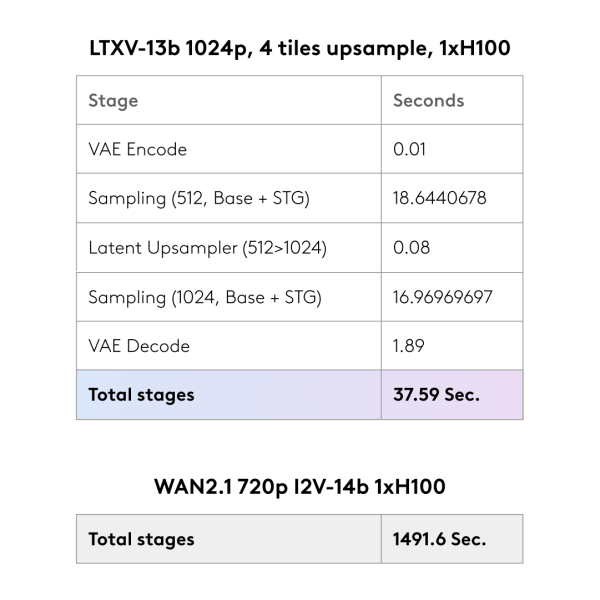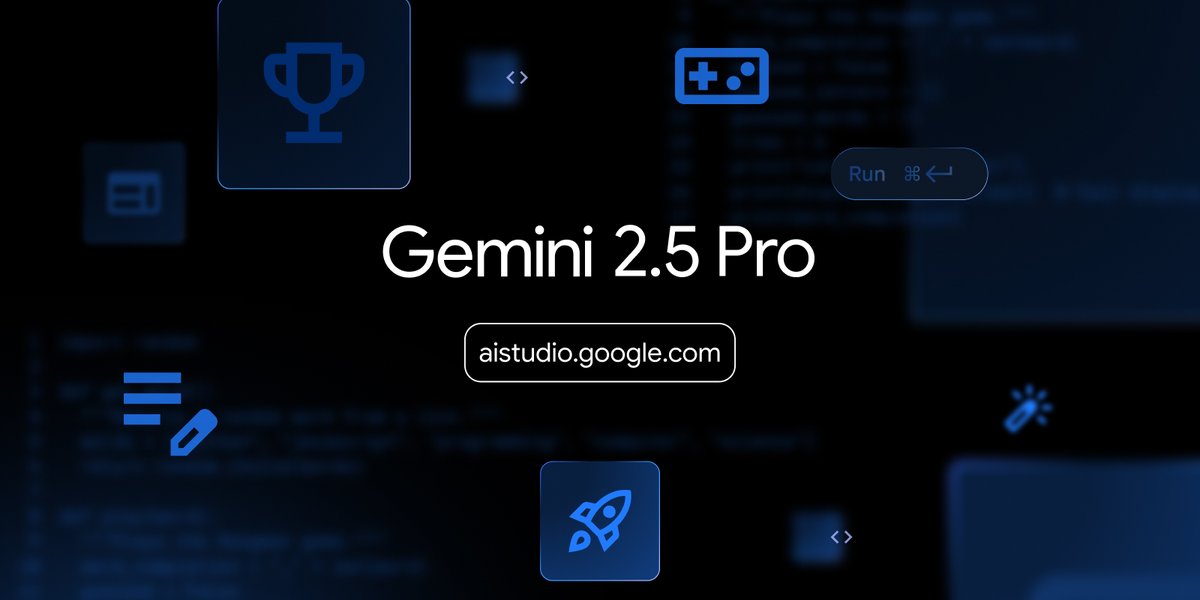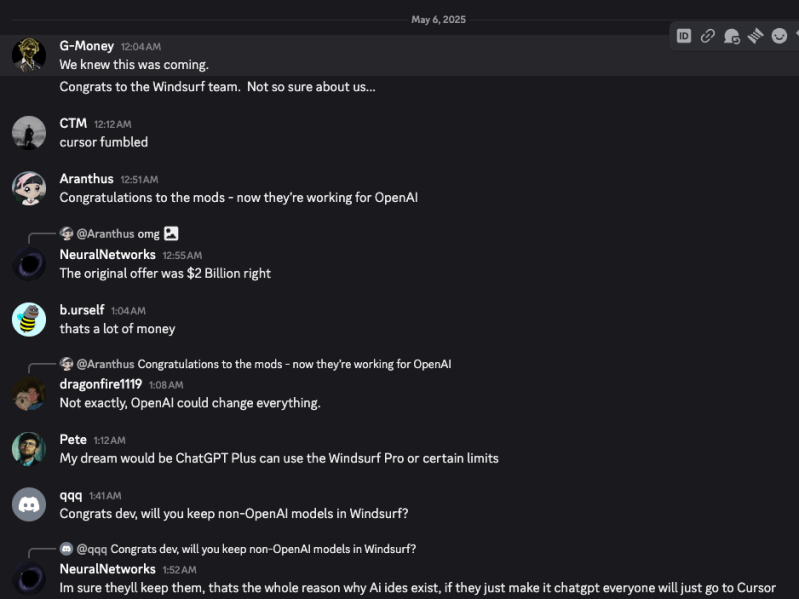Join our daily and weekly newsletters for the latest updates and exclusive content on industry-leading AI coverage. Learn More
It’s a conundrum: Customer teams have more data than they can ever begin to use — from Salesforce notes, Jira tickets, project dashboards, Google Docs — but they struggle to bring it all together when crafting customer messaging that really resonates.
Existing tools often rely on generic templates or slides and fail to provide a complete picture of customer journeys, roadmaps, project goals and business objectives.
Korl, a startup launched today, hopes to overcome these challenges with a new platform that works across multiple systems to help create highly-customized communications. The multi-agent, multimodal tool uses a mix of models from OpenAI, Gemini and Anthropic to source and contextualize data.
“Engineers have powerful AI tools, but customer-facing teams are stuck with shallow, disconnected solutions,” Berit Hoffmann, CEO and co-founder of Korl, told VentureBeat in an exclusive interview. “Korl’s core innovation is rooted in our advanced multi-agent pipelines designed to build the customer and product context that generic presentation tools lack.”
Creating tailored customer materials through a multi-source view
Korl’s AI agents aggregates information from across different systems — such as engineering documentation from Jira, outlines from Google Docs, designs from Figma and project data from Salesforce — to build a multi-source view.
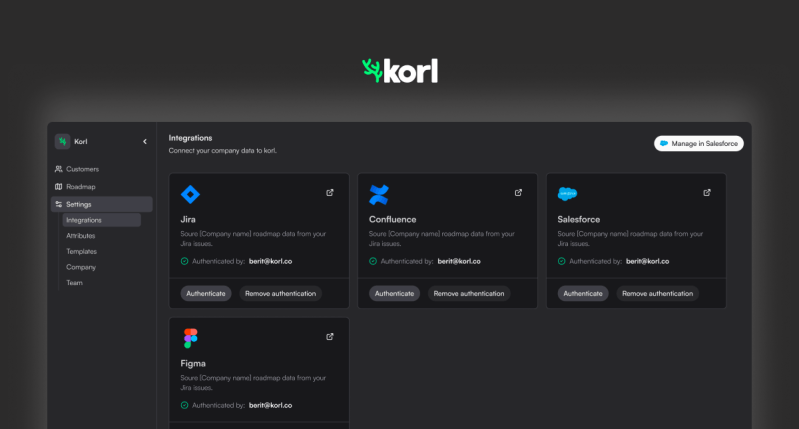
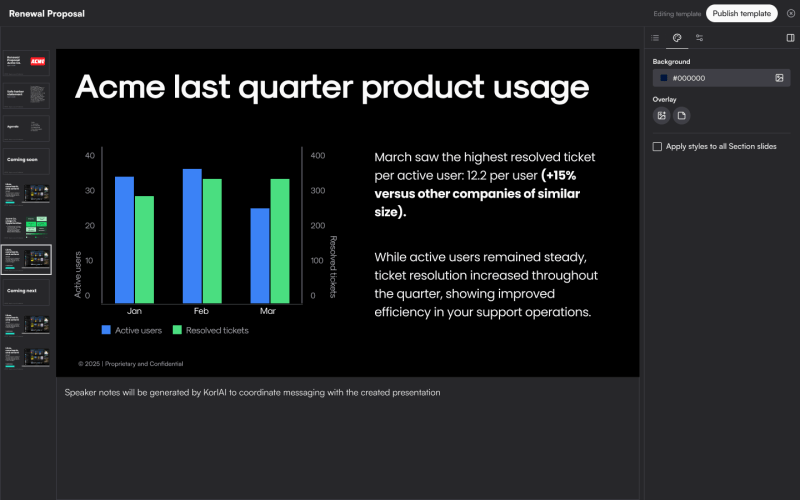
For instance, once a customer connects Korl to Jira, its agent studies existing and planned product capabilities to figure out how to map data and import new product capabilities, Hoffmann explained. The platform matches product data with customer information — such as usage history, business priorities and lifecycle stage — filling in gaps with the use of AI.
“Korl’s data agents automatically gather, enrich, and structure diverse datasets from internal sources and external public data,” said Hoffmann.
The platform then automatically generates personalized quarterly business reviews (QBRs), renewal pitches, tailored presentations and other materials for use in important customer milestones.
Hoffmann said the company’s core differentiator is its ability to deliver “polished, customer-ready materials” such as slides, narratives and emails, “rather than merely analytics or raw insights.”
“We think this delivers a level of operational value that customer-facing teams need today given the pressures to do more with less,” she said.
Switching between OpenAI, Gemini, Anthropic, based on performance
Korl orchestrates an “ensemble of models” across OpenAI, Gemini and Anthropic, selecting the best model for the job at the time based on speed, accuracy and cost, Hoffmann explained. Korl needs to perform complex, diverse tasks — nuanced narratives, data computation, visuals — so each use case is matched with the most performant model. The company has implemented “sophisticated fallback mechanisms” to mitigate failures; early on, they observed high failure rates when relying on a single provider, Hoffman reported.
The startup developed a proprietary auto-mapper fine-tuned to handle diverse enterprise data schemas across Jira, Salesforce and other systems. The platform automatically maps to relevant fields in Korl.
“Rather than just semantic or field-name matching, our approach evaluates additional factors like data sparsity to score and predict field matches,” said Hoffmann.
To speed the process, Korl combines low-latency, high-throughput models (such as GPT-4o for rapid, context-building responses) with deeper analytical models (Claude 3.7 for more complex, customer-facing communications).
“This ensures that we optimize for the best end user experience, making context-driven tradeoffs between immediacy and accuracy,” Hoffmann explained.
Because “security is paramount,” Korl seeks enterprise-grade privacy guarantees from vendors to ensure customer data is excluded from training datasets. Hoffmann pointed out that its multi-vendor orchestration and contextual prompting further limit inadvertent exposure and data leaks.
Grappling with data that is ‘too messy’ or ‘incomplete’
Hoffman noted that, early on, Korl heard from customers that they worried their data would be “too messy” or “incomplete” to be put to good use. In response, the company built pipelines to understand business object relationships and fill in gaps — such as how to position features externally, or how to align values around desired outcomes.
“Our presentation agent is what leverages that data to generate customer slides and talk track [guide conversations with potential customers or leads] dynamically when needed,” said Hoffmann.
She also said Korl features “true multimodality.” The platform isn’t just pulling data from various sources; it’s interpreting different types of information such as text, structured data, charts or diagrams.
“The critical step is moving beyond the raw data to answer: What story does this graph tell? What are the deeper implications here, and will they actually resonate with this specific customer?,” she said. “We’ve built our process to perform that crucial due diligence, ensuring the output isn’t just aggregated data, but genuinely rich content delivered with meaningful context.”
Two of Korl’s close competitors include Gainsight and Clari; however, Hoffmann said Korl differentiates itself by incorporating deep product and roadmap context. Effective customer renewal and expansion strategies require deep understanding of what a product does, and this should be coupled with analysis of customer data and behavior.
Further, Hoffmann said Korl addresses two “foundational shortcomings” of existing platforms: deep business context and brand accuracy. Korl’s agents gather business context from multiple systems. “Without this comprehensive data intelligence, automated decks lack strategic business value,” she said.
When it comes to branding, Korl’s proprietary technology extracts and replicates guidelines from existing materials.
Reducing deck prep time from ‘multiple hours to minutes’
Early indications suggest Korl can unlock at least a 1-point improvement in net revenue retention (NRR) for mid-market software companies, said Hoffmann. This is because it uncovers previously unrealized product value and makes it easy to communicate that to customers before they churn or make renewal or expansion decisions.
The platform also improves efficiency, reducing deck preparation time for each customer call from “multiple hours to minutes,” according to Hoffman.
Early customers include skills-building platform Datacamp and gifting and direct mail company Sendoso.
“They tackle a critical and overlooked challenge: Too often, product features are released while go-to-market (GTM) teams are not prepared to sell, support or communicate them effectively,” said Amir Younes, Sendoso’s chief customer officer. “With Korl’s AI, [go-to-market] GTM enablement and asset creation could be just a click away — without adding overhead for R&D teams.”
Korl entered the market today with $5 million in seed funding in a round co-led by MaC Venture Capital and Underscore VC, with participation from Perceptive Ventures and Diane Greene (founder of VMware and former Google Cloud CEO).
Daily insights on business use cases with VB Daily
If you want to impress your boss, VB Daily has you covered. We give you the inside scoop on what companies are doing with generative AI, from regulatory shifts to practical deployments, so you can share insights for maximum ROI.
Read our Privacy Policy
Thanks for subscribing. Check out more VB newsletters here.
An error occured.




















